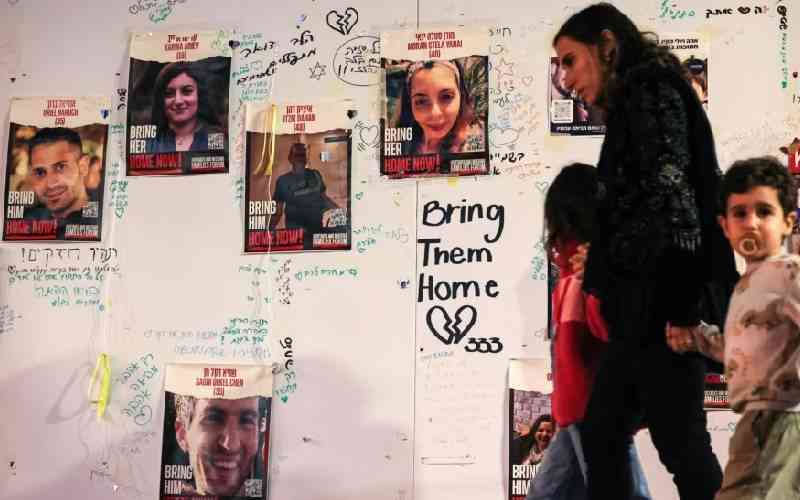×
The Standard e-Paper
Home To Bold Columnists

The release of the first hostages held by Hamas militants in Gaza has been delayed until at least Friday, Israel's national security adviser said in a statement late Wednesday.
"The release will begin according to the original agreement between the parties, and not before Friday," Tzachi Hanegbi said, adding that talks on the deal were continuing.